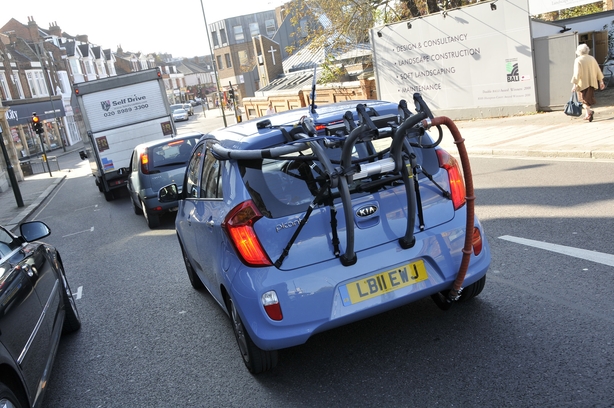It's 171 registration season at the car showrooms and every car manufacturer is anxious to get you into a new car and the chances are it's a diesel car they want to get you into. The vast majority of new cars sold here are diesel - 70 per cent at the last count - but few seem to question the wisdom of buying a diesel car, not to mention the health consequences.
An Environmental Protection Agency report published this month seems to have slipped under the news radar when it should have been headline news. Pollution is causing an estimated 1,200 premature deaths in Ireland every year - some 400,000 across Europe - and a major cause of these deaths is transport pollution. And most transport pollution is, by definition, caused by diesel.
Diesel is less refined than petrol but it pollutes more in terms of sooty particles. People with asthma, children, the elderly and those prone to any breathing difficulties are suffering. While we have reduced CO2 emissions and rewarded car buyers with lower tax (one in four car sold here fall within the lowest CO2 band of between 0 and 120 grams per kilometre driven and therefore attract the lowest band of tax), the level of NOx (nitrogen oxide) from diesel cars has continued unabated and mostly unchallenged.
Now it transpires that 97 per cent of all modern diesel cars exceed the official limits laid down by the EU. Emissions Analytics in the UK studies pollution in real-world conditions and not those provided in laboratory testing situations.

Emissions Analytics in the UK uses real-world emissions and pollution tests
In short, diesel cars are far more polluting than we previously realised and car sales people will not be anxious to inform you about this as they charm you with finance offers, better levels of standard equipment and colour options. In many cases, they themselves are not even aware of the dangers posed by diesel.
Other European countries are now taking the lead in terms of addressing the issue of diesel. Dutch politicians have called for a diesel ban by 2025, Madrid, which is beset by vast pollution from diesel cars, is considering a ban on diesel cars in the city sooner rather than later. And London is not far behind.
Apart from the serious environmental and health issues caused by diesel pollution, there are also practical considerations. Diesel engines are built for high mileage and heavy use. Which is why more and more drivers in Irish towns and cities are having expensive and ongoing problems with diesel particulate filters that clog up because the system dislikes low mileage and does not burn away the soot during short commutes. One engine expert from a major car company put it bluntly: anyone driving "less than 25,000 kilometres a year should not be buying a diesel car".
That is not something you are going to hear from a sales person.
There is also the price of diesel cars, which is higher than for cars with petrol engine. A €2,000 Euro premium would not be unusual.
It always strikes me as ironic that many car buyers consider safety and that of their children a priority. Perhaps they should now consider their health and that of the rest of society to be of equal importance.


